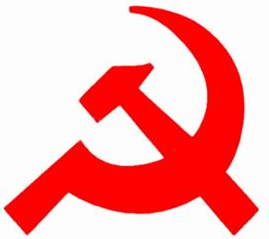The war against Libya from March to October 2011 was a multinational operation under the aegis of the United Nations (Security Council resolution 1973). All operations were carried out under the direction of NATO. France played its part, particularly in the field of air intervention.
The pretext for this intervention in the name of democracy and human rights, was to support part of the Libyan army in the overthrow of Marshal Gaddafi, head of the Libyan state. In reality, this imperialist aggression was aimed at thwarting the will of the Libyan leadership to control more tightly its oil and gas resources. A war for democracy? No! A predatory war to ensure control of the enormous energy resources of the country!
The pretext of aid to the "democratic forces" was hammered by the media. In France it received the support of all the political forces from the National Front estimating only that: "the decision of the UN was too late", to Mélenchon who declared in the newspaper Liberation: "We must break the tyrant to prevent him from breaking the revolution", while in the European Parliament, socialists, Mélenchon and the elected members of the PCF voted a resolution supporting the intervention. At the UN, the resolution allowing NATO’s military intervention was widely voted with the complicit abstention of Germany, China, Brazil, Turkey and Russia.
Instead of democracy, each component of the coalition began to organize zones of influence by relying on factions and mercenaries, all leading to a permanent civil war and the destruction of the Libyan state: the backdrop still being the grabbing of Libya’s energy wealth and the strategic character of its position in the region.
Today, three forces clash in the Libyan theater: the national unity government of Tripoli (GNA), recognized by the UN and most of the western powers except France which in its relative effacement leans for Haftar, the government of Benghazi led by Colonel Haftar and the tribes of southern Libya. Support for these forces mirrors the ambitions of the leading imperialist and / or regional powers aiming to share the Libyan pie as in Syria. There is in fact a distribution of forces fairly close to that of Syria. On the Tripoli side, mainly Turkey is at the helm. As in Syria, it intends to weigh as the first regional power. It also aims to take over offshore exploitation of the natural gas reserves it desperately needs. The newspaper Le Monde notes: "He also (Erdogan) obtained from Faïez Sarraj, in exchange for the military aid brought to him, the validation of Turkish maritime claims on the eastern Mediterranean, where Turkey blithely breaks the rules of international law, much to the chagrin of Greece and Cyprus”. So much so that the Greek authorities, as much a member of NATO as Turkey, threaten the latter with military intervention. Note that the Turkish military presence is doubled by thousands of jihadist mercenaries withdrawn from Syria which give it a striking force that counts. Behind Benghazi’s government is the Russian imperialist power which provides military and logistical support to Haftar’s forces, in particular through mercenaries from the private company Wagner. In fact, as the newspaper Le Monde observes, the result is as in Syria a Turkish-Russian condominium which become the dominant forces there.
The Gulf countries are not to be outdone. Around Saudi Arabia that the relative slackening of the USA in the region led to a strategy of alliances ensuring it a certain hegemony, was formed what is called the Arab quartet with, around Saudi Arabia, Egypt, the United Arab Emirates, and Bahrain. For them as for the other regional powers, the weak states have become areas where the power struggle between these key players has become violent. They compete directly with Turkey for regional hegemony as well as in Africa, including the Maghreb. This Arab quartet intends to safeguard the bases of its power and also impose regimes under its thumb in the peripheral states.
For their part, the Europeans have little influence over the two foreign expansionist powers in the Middle East, Russia and Turkey, involved in two proxy wars in Libya and Syria.
The recent defeats of Benghazi's troops and their withdrawal from the north of the country lead to a state of precarious balance which worries the neighboring powers, and in particular Algeria.
This explains Algiers' commitment to resolving a conflict whose implications can be serious for it.
Thus, President Tebboune indicated that the intervention of Algeria in Libya is: "sound". “We also want to protect our borders. I said it frankly. What is happening in Syria is taking shape in Libya. And if it doesn't stop, the result is “somalisation”.(...) Maybe there are people who want to involve us in this conflict. " The President added: "The national interest of Algeria dictates that there is peace at our borders. Otherwise, we have to arm ourselves. And to renew the weapons each time, mobilize our soldiers and our officers, I prefer to put it in development. I prefer to create startups, jobs.” Algeria’s concern is therefore real, being itself under pressure from forces which intend to deprive it of control over its own energy resources.
As we can see, the situation in Libya jeopardizes peace. It results from the violent confrontations exacerbated within imperialism in this new phase opened by the disappearance of the USSR with a new division of the zones of influence in motion.


